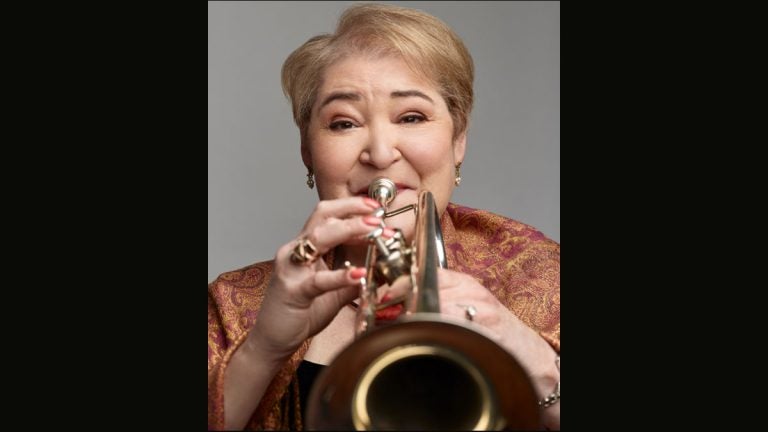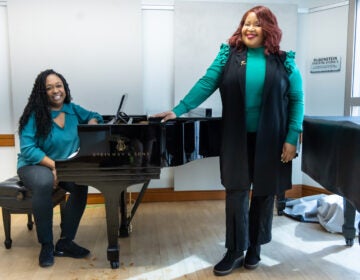Celebrating women in Klezmer music
The Philadelphia Folklore Project is celebrating that lineage with a performance on Sunday, Oct 28, at the Annenberg Center called Soul Songs: Inspiring Women of Klezmer.
Listen 2:22
Susan Watts, a fourth generation Klezmer musician will perform alongside an orchestra of exclusively women on Sunday at the Annenberg Center during a performance called "Soul Songs: Inspiring Women of Klezmer" (Provided)
For immigrants coming to the U.S. in the 20th century, it was common for new citizens to turn away from their cultural roots. It occurred with language, spawning generations of monolingual Americans, and it also happened with music.
Klezmer is the cultural music of Eastern European Jews, and traditionally had a presence at all kinds of celebrations. But theater designer Jenny Romaine said that when she was growing up in the U.S., Klezmer wasn’t hip. “Oh, all those old guys at your bar mitzvah playing that music, when you really wanted to be hearing the Beatles.”
Then, in the 1970s and 80s, a revival of sorts began. New groups like the Klezmatics and the Klezmer Conservatory Band interpreted the music for a new audience. They started by listening to the old players, with a new found respect. “All of a sudden, everyone was like, ‘oh my gosh, who were those people, what were they playing?’” recalled Romaine.
But in Philadelphia, as the fourth generation in a family of Klezmer musicians, Susan Watts had a different childhood experience. “I grew up with this music being in my family. It was not covered up, it was not lost. It was something that my family played and perpetuated. It was part of our lives,” she said.
The Philadelphia Folklore Project is celebrating that lineage with a performance on Sunday, Oct 28, at the Annenberg Center called Soul Songs: Inspiring Women of Klezmer. “That was my dream, to get eleven of the best Klezmer players, all women, in North America and play all new Klezmer music,” said Watts. “The music is very male-dominated and we’re kind of in the background. I wanted to really bring us out and hear our voices.”
Watts began with music written and performed by three generations of women, but she wanted to take the project beyond just a concert. She interviewed the players with a set of questions to give a glimpse of the women behind the music. “Then I was like, ‘what am I going to do with these answers?’ she recalled. “So I crafted vignettes to display their answers during the show.”
Romaine designed the staging for the texts and also created costumes, keeping the theme of lifting up the artistry of women in mind. “The costumes are a combination of band uniforms (because this is an orchestra) and diva coats,” said Romaine. “If you think of fabulous divas showing up on the red carpet, what they would wear. It’s like a team uniform as a fashion line.”
Watts had another mission for the project, to see Jewish Americans reclaim Klezmer as part of their heritage. “The future of Klezmer is extremely important because it’s alive,” she said. “And people of Ashkenazy descent, even if they’re not religious, they don’t belong to a synagogue, they don’t do Jewish things, this is cultural music, this is the cultural music of their people. Because frankly, the holocaust killed a culture, and we took it back and we grew it. This is breathing new life into it.”
“Soul Songs: Inspiring Women of Klezmer” will be presented at the Annenberg Center for the Performing Arts on Sunday at 4 p.m.
WHYY is your source for fact-based, in-depth journalism and information. As a nonprofit organization, we rely on financial support from readers like you. Please give today.




